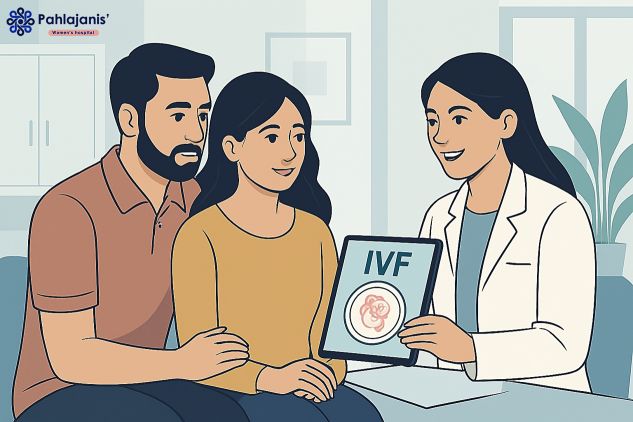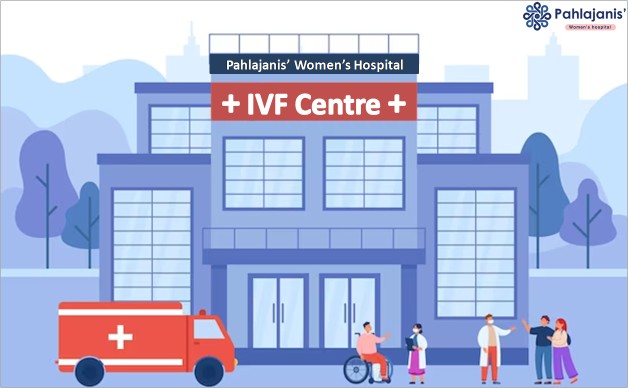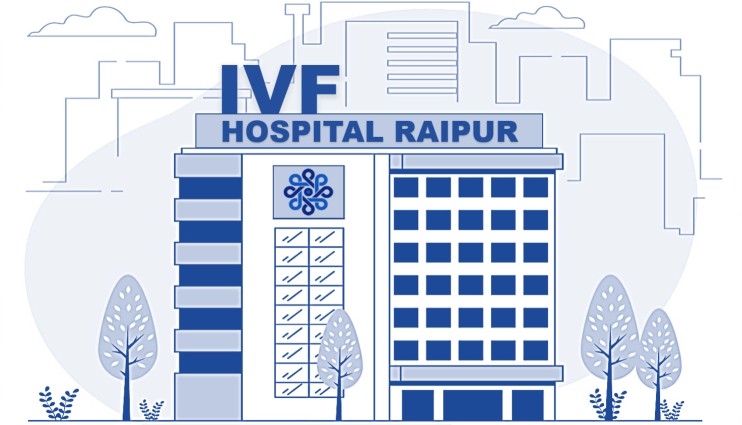Becoming a parent is one of life’s most precious dreams. But for many couples facing infertility or medical challenges, this dream may seem distant. That’s where surrogacy comes in — a beautiful path that helps people experience the joy of parenthood even when natural pregnancy isn’t possible.
What is Surrogacy? The Compassionate Solution
Surrogacy is an arrangement where a woman (the surrogate mother) carries and delivers a baby for another person or couple (the intended parents). After birth, the baby goes home with its forever family.
Think of it like this:
If building a family is like growing a garden, sometimes you need help from someone with fertile soil. The surrogate offers her “soil” (womb) to nurture the seed (embryo) that belongs to you.
Why it matters:
Over 30 million couples worldwide struggle with infertility (World Health Organization, 2025). It gives them a scientifically proven, emotionally profound path to parenthood when natural conception or pregnancy isn’t possible.
Two Paths: Traditional vs. Gestational Surrogacy
- Traditional Surrogacy (Rarely Used Today)
Here, the surrogate’s own egg is fertilized with sperm from the intended father or a donor. This makes her the baby’s biological mother.
Why it’s fading:
- Legal complexities (surrogate has parental rights)
- Emotional challenges for all parties
- Only 5% of modern surrogacies use this method
- Gestational Surrogacy
This is the gold standard today. The surrogate carries an embryo created through IVF (In Vitro Fertilization) using:
- Eggs from intended mother/donor
- Sperm from intended father/donor
Key fact: The surrogate has zero biological connection to the baby. She’s like a special “oven” baking a cake made entirely from your “ingredients.”
Success spotlight:
Gestational surrogacy has a 75% success rate per embryo transfer for women under 35 (CDC, 2025).
Who Walks This Path? More People Than You Think
Surrogacy isn’t just for heterosexual couples. It’s a lifeline for:
- Cancer survivors who lost their uterus
- Women with heart disease who can’t risk pregnancy
- Same-sex male couples dreaming of biological children
- Single parents wanting a biological child
- Women with repeated miscarriages
Your Journey Explained: 6 Steps to Holding Your Baby
Step 1: Finding Common Ground (Screening)
Before anything else, everyone undergoes thorough checks:
- Medical tests: Ensuring surrogate is physically fit
- Psychological screening: Confirming emotional readiness
- Legal contracts: Clearly defining rights, costs, and responsibilities
Why these matters: This foundation prevents misunderstandings later. In India, contracts must follow the 2021 Surrogacy Act.
Step 2: Creating Life (IVF Process)
This is where science shines:
- The intended mother/donor takes hormones to produce multiple eggs.
- Eggs are retrieved in a 15-minute clinic procedure.
- Eggs + sperm combine in a lab dish → embryos grow for 3–5 days.
Did you know? India performs over 250,000 IVF cycles annually – among the highest globally (Indian Council of Medical Research).
Step 3: The Transfer (Planting Hope)
The healthiest embryo is placed in the surrogate’s uterus via a thin catheter. It’s painless and takes 5 minutes – like a Pap smear.
Success tip: Clinics now use AI to select the best embryo, boosting success rates by 20% (Journal of Assisted Reproduction, 2024).
Step 4: The Pregnancy Journey (Walking Together)
For 9 months, the surrogate receives:
- Regular ultrasounds
- Nutritional support
- Emotional counseling
Intended parents are encouraged to:
- Attend appointments
- Feel baby kicks
- Build a bond with the surrogate
Step 5: Birth Day (The Miracle Moment)
When the baby arrives, intended parents are usually in the delivery room. Legal paperwork transfers parental rights immediately under Indian law.
Step 6: After the Rainbow (Post-Birth Care)
Everyone receives support:
- Surrogates get medical checkups + counseling
- Parents get infant care guidance
- Many families stay in touch for years
Typical timeline: 15–24 months from start to baby in arms.
Surrogacy Laws in India: Your Protector
India’s 2021 Surrogacy (Regulation) Act makes the process ethical and safe:
- Only altruistic surrogacy allowed: Surrogates receive medical expenses + insurance (no commercial payments).
- Eligible intended parents: Married Indian couples (1+ year) with proven infertility.
- Eligible surrogates: Married women aged 25–35 with at least one child of their own.
- LGBTQ+/single parents: Currently excluded (law may evolve).
Penalties: Unregistered clinics face 10-year imprisonment + ₹10 lakh fines.
Success Rate of Surrogacy in India
One of the most common questions couples ask is: “How successful is surrogacy?”
The success depends on several factors, including:
- The age and health of the egg donor or intended mother
- The quality of sperm
- The overall health of the surrogate mother
- The experience and technology used by the fertility clinic
Success Rate in India (Gestational Surrogacy):
| Age of Egg Provider | Success Rate per Attempt |
| Below 35 Years | 55% to 65% |
| 35–40 Years | 45% to 55% |
| Above 40 Years | 35% to 45% |
With multiple IVF cycles and good embryo quality, success rates may go up to 70–75%.
🔬 Clinics that use advanced techniques like blastocyst transfer, embryo freezing, and genetic screening (PGT-A) also show higher success rates.
🏥 Well-established centers like Pahlajanis’ IVF Center consistently report above-average success rates due to expert teams and cutting-edge technology.
Facing Fears: Risks & Ethics
Medical Risks
Surrogates face normal pregnancy risks: gestational diabetes, hypertension. Mitigated through:
- Strict health screenings
- 24/7 medical access
Emotional Concerns
- “Will the surrogate bond with my baby?”
No – gestational carriers report seeing the baby as “someone else’s child from day one.”
- “What if she changes her mind?”
Legally impossible in India. Parental rights are established pre-birth.
Ethical Guardrails
- Exploitation prevention: Ban on commercial payments protects low-income women.
- Child’s rights: Birth certificates list intended parents immediately.
Legal Rules of Surrogacy in India
The Government of India now has strict rules for it:
| ✅ Who Can Choose Surrogacy? | ✅ Who Can Be a Surrogate? |
|
|
These rules are designed to prevent misuse and protect all parties involved.
How Many People Need Surrogacy?
- According to the World Health Organization (WHO), 1 in 6 couples globally suffer from infertility.
- In India, it’s estimated that 10–15% of couples face difficulty in conceiving.
- Thousands of couples now turn to IVF and surrogacy as a solution.
- After the 2021 law, only ethical and regulated surrogacy is allowed in India.
Benefits of Surrogacy
- Gives hope to infertile couples
- Allows biological connection (in gestational surrogacy)
- Safe and medically monitored
- Legally protected under Indian law
- Emotional satisfaction for both families involved
Is Surrogacy Right for You?
You might consider it if:
- You’ve had multiple failed IVF attempts
- You are medically unfit to carry a baby
- You’ve had your uterus removed
- You want a child genetically related to you
- Other options like adoption don’t fit your need
Always consult a certified fertility specialist before deciding.
Pahlajanis’ IVF Center: Your Guided Path in Raipur
At Pahlajanis’ IVF Center in Raipur, couples find the support, technology, and compassion needed to begin their parenthood journey through surrogacy. With over 42 years of experience, a team of expert fertility doctors, and a strong ethical foundation, Pahlajanis ensures every process is safe, respectful, and successful.
👉 Visit the Pahlajanis’ IVF Center, for more info
Whether you’re exploring options like IVF, IUI, or surrogacy, Pahlajanis offers personalized care, legal guidance, and emotional support at every step. We stand out through:
Ethical Practices
- Strict compliance with India’s 2021 surrogacy laws
- Zero commercial surrogacy – only altruistic arrangements
- Transparent pricing (No Hidden Costs)
Medical Excellence
- Advanced IVF lab with AI embryo monitoring
- 75%+ embryo transfer success rate
- Rigorous surrogate health screenings
Human Touch
- Free psychological counseling for surrogates & parents
- Legal guidance through every contract
- Post-birth support groups
Conclusion: A New Way to Create Families
Surrogacy offers a new path to parenthood for those who cannot have a child naturally. With proper legal guidance, emotional support, and medical care, it can become a smooth and fulfilling journey. Choosing the right fertility center is the first step towards making this dream come true.
🎥 What is surrogacy really like? Get clear answers from Dr. Neeraj Pahlajani in this detailed video.











